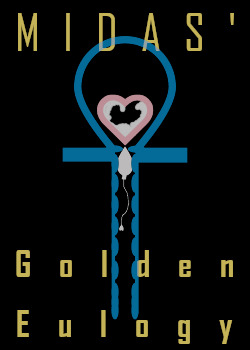§
I thought I would take a moment to go through a few names and clarify how they should be pronounced. It hardly makes a difference for the reader, but some people might be interested in how the writer pronounces them.
First, our heroine Tiana: Until I thought about it, I though this one was obvious. Then I realized it could rhyme with Diana, “Tie-ANN-a” or be pronounced “tee Anna” (both with short ‘a’ like ‘cat’). But for me, it is “tee AH na”. (Although in Faerie enunciation, it is TEE-uh-Nah)
Atian names are English names, but the farther the character’s origin is from Atius, the less standard the name. So I won’t explain “Graham”, “Owen”, “Roderick” etc. Ged is short for Gerald, so it is “Jed”.
But when we get to a character born on the southern border of Atianus, we get our first made-up name, Melione. I originally rhymed this to with the proper classical Greek pronunciation of Hermione (“Hair mee OH nay”), pronouncing it “Mel ee OH nay”. But I’m a native English speaker, and inevitably began rhyming it with the English “Hur MY uh nee” pronunciation instead. So, it’s “Meh LY uh nee”.
Brigitte was going to be another example of this (she’s from the same home town), and I originally meant to make it “Brig it” (hard G like in get), but I learned after I began publishing that “Brigitte” is an existing English alternate spelling of Bridget (“Brij it”), so I left it at that. Their home village is on the border of Atianus, so it makes sense they would use both Atian names and non-Atian names.
Similarly, the historic figure Rephale, although she crowned herself Empress in Atius, is clearly not local. Her name looks like it ought to be English, perhaps a variant of Raphaela, but it is my own invention. This indicates that she was not originally from Atius. I also class Mirna (Meer-na) into this category, although it is a real-world name hailing from the Balkans. If you were pronouncing it “Murna”, that’s fine. That’s an Irish name (Gaelic spelling Muirne), so it’s to be expected.
Rephale is an example of a Dorian name. Others have included “Aralin”, “Anto”, “Oseri”, “Narses”, “Royses”. They have a vaguely Continental European character, possibly French or something else Mediterranean, while not actually being such.
The explanation for Rephale, an Atian monarch, having a Dorian name at a time when Pendor or other Dorian kingdoms were not under Atius is that she came from a border region, like how many people in northeastern France have German names.
Ryuu Kowa, or properly, Kowa Ryuu, is of course Japanese, and his name is pronounced duly, but in case the reader isn’t aware, Ryuu sounds very close to the UK pronunciation of the word “dew” (Dyoo). Kowa rhymes with Showa, which English speakers tend to pronounce correctly.
I can’t imagine a different way to pronounced Arken, but just in case, it’s “AR ken”.
Northern names all have Iberian Spanish pronunciations, and Chiara, Allia, Ceria, Bruna and Elianora are all Northerners. If it isn’t clear, Ceria is pronounced with an “S” sound, SEHR-ya.
Elianora was also actually supposed to be one of my ‘made up’ almost-English names, until I learned that it is the equivalent of Eleanor in multiple Romance languages. So I just decided it was also a Northern name.
And then there are Fairy names. Tiana’s mother has two. Her latest human alias is “Sasara”, which is pronounced “Sah sah rah”, although Atians (and probably you readers as well) pronounce it “suh SEHR uh”. Her real name is less obvious. The “è”, depending on the fairy saying it, is either a silent E, or a barely pronounced ‘schwa’ sound. It’s existence at the end of a name or word makes the r in front of it stronger and puts the stress on the preceding consonant by turning it into the normally stressed penultimate syllable.
So, the way Mother, Tiana and the rest of the Fairy Royals say it, “Deharè” is pronounced “Deh HAHR”. Dilorè is, for the same reason, “Dih LOHR”.
But if you have been putting an unaccented ‘uh’ at the end of these, some fairies pronounce the è that way too, so it’s fine.
There are some sounds that have arisen due to elision, the process of slurring syllables together. For this reason there are names like “Falhàn”, which would be properly pronounced something like “Fall hun”, but ends up pronounced “Falion” (like the Irish surname) instead. Earlier in the story there was “Lilhàn”, sidekick to Feraen, whose name gets pronounced “Lilian”.
The “a” (ah) and “e” (eh) when put together are another elision, that makes a sound like “a” in cat. The ë is a yod sound, like the “y” in “yes”, so Aenëe is thus pronounced “ANN yeh”. (Ann as in the English name). Likewise, Feraen is “Fair ANN”. But it is fine for those who might have been giving ae an “eye” sound (Ayn) or an “eh” to “ei” sound (En). The former is closer to the original Fairy pronunciation, and the latter is a common variant elision.
Mára is “MY rah” and Lâra is the Spanish pronunciation of “Laura”, where the “Lau” rhymes with “now” rather than the English “Laur” pronunciation, rhyming with”door”. Most other fairy names, like Serera, are probably self-explanatory. Just pay attention to the “á” (English long “I”), “é” (English long “A” like in “rain”), “â” (rhymes with English “now”) and “à” (“uh”, as in “mutt” or “gut”.)
Elder names (Senhion, Kanon, Taihimel, Jia, Lu, Astaroth, Erebos) are, more or less, Japanese pronunciation, except with added “L” and unvoiced “Th” sounds that don’t occur in Japanese (or rather, the Japanese use a consonant that lies intermediate between American English ‘R’ and ‘L’, while Xa-ne makes the same distinction between the two as American English does). Also, there is a final “s” sound which officially doesn’t exist in Japanese, but does exist in practice. (Final “s” exists in many Japanese dialects in words with written ‘-su’ syllables, but it isn’t canon pronunciation. That’s why you hear both dehsu/-mahsu and dehss/-mahss at the end of polite Japanese sentences in Anime. Which one the speaker uses depends upon their dialect and inclination. There is a similar practice with -ku becoming a final -k in intermediate syllables in colloquial Japanese, which is also not canon pronunciation. However, there are no final ‘K’s in Elder Xa-Ne speech.)
A scattering of names from other ‘ethnics’ appear throughout Substitute Hero, such as the few named demons that show up, but they can generally just be read by appearance.








